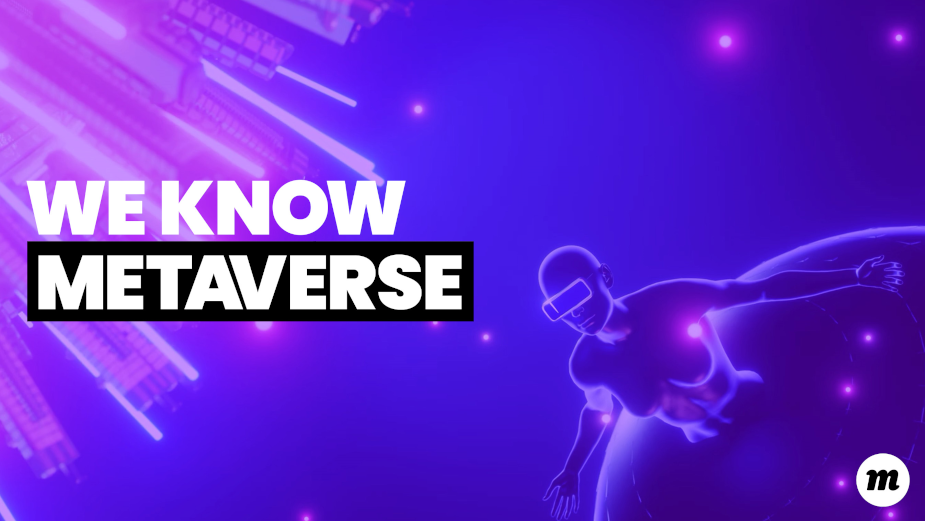
73% of Canadians Feel More Included in the Metaverse Than in Real Life

Metaverse discussions about creating virtual worlds consume the plans of many fashion, automotive and retail brands. However, the human side of consumer activities in the metaverse have not been a significant part of the dialogue. A global study by Momentum Worldwide, metaverse partners to the American Association of Advertising Agencies (4As), found that 73% of Canadians feel more included in the metaverse than in real life. Consumers are now looking to the metaverse to fill three core aspects of life—inspiration, individuality and inclusion.
More than $120 billion has been invested in building out metaverse technology and infrastructure in 2022 to take advantage of the nearly three-quarters of consumers worldwide (71%) who promise to focus more on their mental wellbeing and are flocking to the metaverse to seek inspiration, be themselves, and connect with others more positively and inclusively. Exponential growth and adoption of marketing technologies led to the metaverse, but the impact these technologies have on people must be a key consideration for a brand's metaverse strategy.
Canadians have joined virtual platforms to have fun, be challenged, find inspiration and connect with others. Research has shown that:
- 73% of Canadians find the metaverse to be a much more inclusive place
- 66% had no idea they had been in the metaverse all this time
- 85% like that they can change their appearance as they desire
- 76% say their friends within the space accept them for who they are rather than what they look like
Jason Alan Snyder, global chief technology officer, Momentum Worldwide, comments, "The metaverse is a combinatorial innovation of complex technologies. Until recently, the combined technologies that form metaverse experiences were costly to deploy and consume and, therefore, not practical. The practice of combining these technologies has matured, deployment costs are reduced and metaverse experiences are broadly available, so consumer adoption is saturating. Brands are adopting the metaverse at scale too. Now we are learning how people behave and feel in the metaverse as we remove the barriers to entry. One particularly interesting area is the relationship between identity and personality.”
"Metaverse identity is an extension of our many identities in the real world. We are accustomed to constructing pseudo-identities for ourselves at work, in our personal lives with friends and family, and on social media. Brands are learning that identity and personality are two different things and not always interlinked. Understanding what consumers want from the metaverse, their behaviours and motivations to fulfil happiness, find escapism and seek inclusion are vital for guiding how brands and businesses should behave. It’s imperative that brands understand when they can or should violate expectations about identity and personality. The new opportunity is to help brands navigate the friction between identity and personality in the metaverse.”
Rodrigo Coelho, managing director of Momentum Worldwide, Canada, says, “Experiential has been accelerated to drive intimacy at scale with the adoption of technology connecting people to brands, products and services, and each-other. The metaverse is the possibility to fully deliver against a contribution model that people want to be a part of. It is a place for brands to welcome large-scale participation and the opportunity to enhance the value of an experience.”
“I personally value its power to facilitate experiences regardless of geography or demographic. It is inclusive and democratic. Anyone can interact regardless of who they are or where they live. Before, brands were focusing on acts in key urban areas and within specific age groups; the metaverse completely disrupts this model.”
Elena Klau, global chief strategy & analytics officer at Momentum Worldwide, adds, “The metaverse has been a word that has been catapulted into focus, but it means different things to different people. Only by understanding what people want from the space and how they are using it can we really know how best to create meaningful, long-term experiences that meet people’s desires for inspiration, individuality and inclusion. The potential is vast.”
The global research was conducted using quantitative and qualitative methods of 4,500 participants from seven countries: Canada, Japan, MENA, Mexico, Spain, the UK and the US.
https://www.mckinsey.com/about-us/new-at-mckinsey-blog/meet-the-metaverse-creating-real-value-in-a-virtual-world












